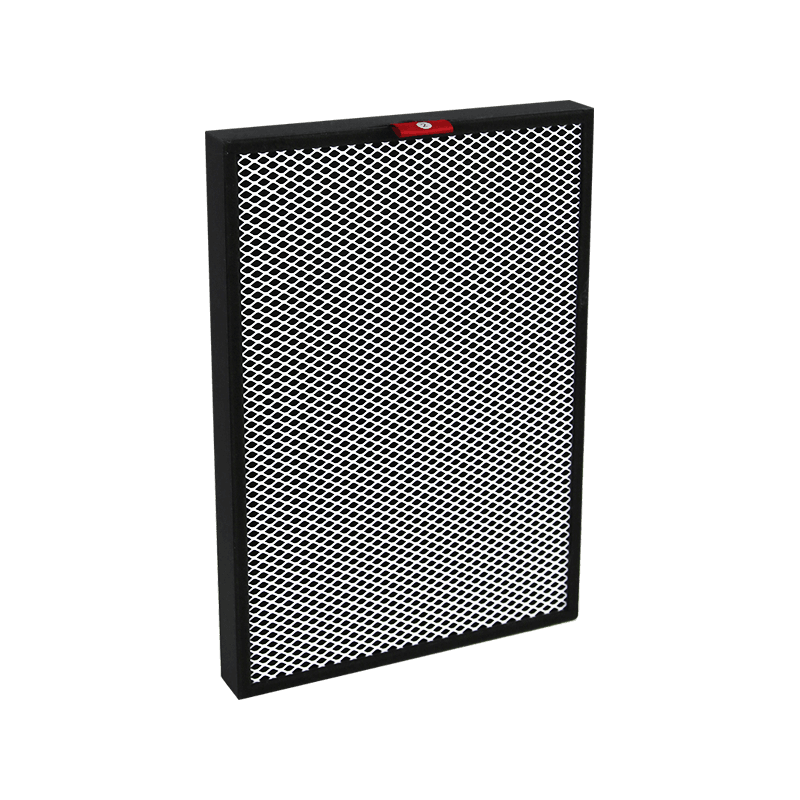From solutions to productions, we’re specialized in making the products you need.
News categories
Product categories
How do activated carbon filters play a key role in air and water purification?
In modern society, the problem of air and water pollution is becoming increasingly serious. How to effectively purify harmful substances in the environment has become the focus of people's attention. As an efficient filtering technology, activated carbon filters have been widely used in air purification, water treatment, industrial waste gas treatment and other fields due to their excellent adsorption capacity. This article will explore the principles, application areas, advantages and future development trends of activated carbon filters.
The micropores on the surface of activated carbon can capture and adsorb molecules in the air or water. This physical adsorption can effectively remove most gases, odors, harmful chemicals and dissolved pollutants in water.
In some cases, the surface of activated carbon can also react chemically with pollutants to convert them into harmless substances, further improving the purification effect. For example, it can remove heavy metal ions in water or decompose harmful gases in the air.

The micropore size of activated carbon is suitable for adsorbing most pollutants with larger molecular weights. It has a similar effect to molecular sieves and can selectively adsorb specific substances in air and water.
Activated carbon filters are widely used in air purifiers, mainly for removing harmful gases, odors and volatile organic compounds (VOCs) in the air. In homes, offices, hospitals and other places, activated carbon filters can effectively improve air quality and remove harmful substances such as smoke, kitchen fumes, formaldehyde, etc.
In the field of water treatment, activated carbon filters are often used to remove chlorine, heavy metals, organic pollutants and odors from water. Many household water purifiers use activated carbon filter elements to improve water quality, remove odors and harmful substances in water, and ensure the safety of drinking water.
In industrial production, activated carbon filters are widely used in waste gas treatment, especially in industries with more harmful gas emissions such as chemical plants and pharmaceutical plants. Activated carbon filters can absorb harmful substances in industrial waste gas, such as benzene, formaldehyde, hydrogen sulfide, etc., to prevent them from polluting the air.
In the food and pharmaceutical industries, activated carbon filters are also used, mainly to remove harmful gases, chemicals and some bad odors generated during the production process to ensure the quality and safety of the products.
In the automotive field, activated carbon filter elements are widely used in in-car air purification systems, mainly used to absorb harmful gases and odors in the car to improve the driving experience of car owners.
Activated carbon has a large surface area and can adsorb a variety of pollutants in the air and water, including harmful gases, odors, heavy metals and organic compounds. Its adsorption capacity makes it irreplaceable in the field of air purification and water treatment.
As a natural material, activated carbon itself is non-toxic and harmless, and no secondary pollution will be generated during use. Its environmental friendliness makes it very safe for use in various fields.
The production cost of activated carbon filter elements is relatively low, and its service life is long, especially for large-scale water treatment and air purification systems, which can provide good cost performance.
Activated carbon filters are suitable for a variety of environments, and different types of activated carbon can be flexibly selected according to the different properties of pollutants and treatment requirements to ensure the best purification effect.
With the continuous improvement of air and water purification requirements, more efficient and durable activated carbon materials will be developed in the future. For example, modified activated carbon is used to improve its adsorption capacity, extend its service life, and be able to handle more complex pollutants.
With the popularization of smart home and Internet of Things technology, activated carbon filters will be increasingly integrated into smart home systems, and the convenience of use and purification effect will be improved through functions such as intelligent sensing and automatic cleaning.
Environmental protection and sustainable development will become the key direction of future research and development of activated carbon filters. Using renewable, non-polluting raw materials to produce activated carbon will help reduce the environmental impact of the production process.
Cartridge Filter: Wide Application of High-efficiency Filtration Technology in Industry and Home
HEPA Filter is essential for maintaining health and well-being
related products
Copyright 2023 Nantong Henka Environment Solutions Co.,Ltd. All Rights Reserved


 English
English русский
русский Español
Español 简体中文
简体中文

























